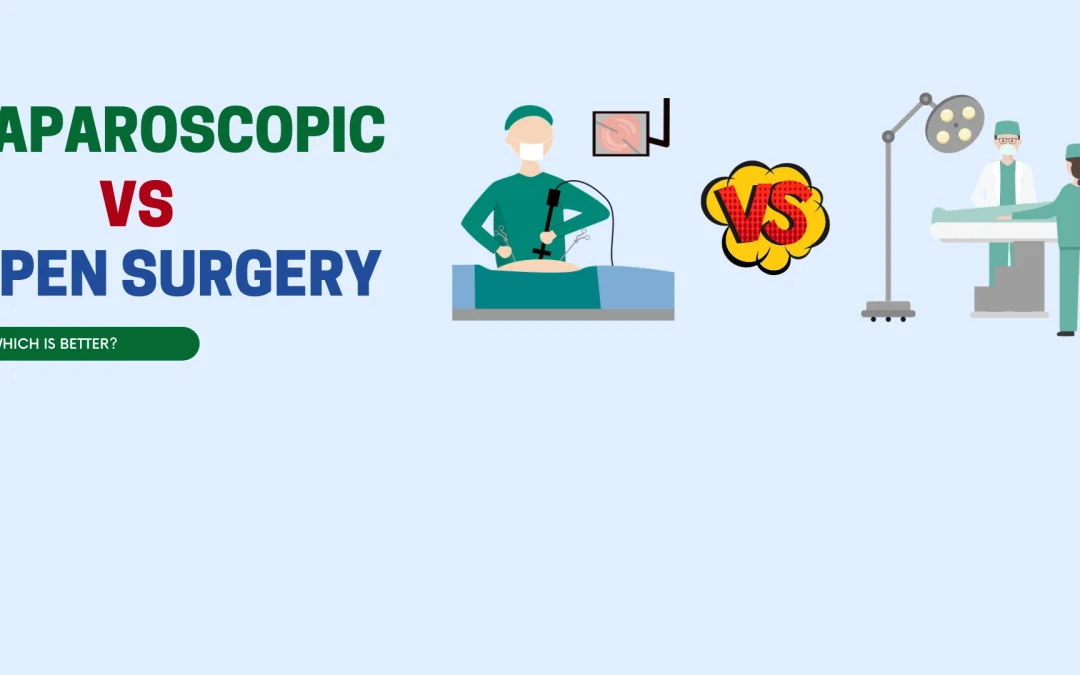A hernia is a condition characterised by a hole through the muscle layers. Although it can happen anywhere in the body, the most common area where it develops is the abdominal wall. The condition doesn’t show warning signs at first; however, as soon as the bulge starts protruding outside your skin, it begins to interfere with your daily activities, thus affecting your quality of life. The doctors will choose among different treatment approaches to fix the problem, and surgery is one of them.
Hernia enlarges with time, and if you don’t get it treated, it may cause several unwanted events, including strangling of intestines or them coming out of your skin. Surgery for hernia can be of two types – open hernia surgery and laparoscopic surgery. Depending on the severity of the condition, the doctor may choose a suitable option. A hernia can be classified into the following types.
· Inguinal Hernia – It is the most common hernia caused in the inguinal canal, where the spermatic cord and blood arteries to the testicles flow. In this type of hernia, fatty tissue or a part of the intestine starts to protrude from the upper inner thigh into the groin. It is more common in men than women.
· Femoral Hernia – Under femoral hernia, fatty tissue or a part of the intestine can be seen protruding from the crotch near the top of the inner thigh. Compared to inguinal hernias, they are less prevalent and primarily affect women in their later years.
· Umbilical Hernia – As the same suggests, under this type of hernia, fat or portion of the intestine starts protruding from the abdomen near the belly button.
· Hiatal Hernia – A hiatal hernia is caused by a hole in the diaphragm, a piece of the stomach rising into the chest cavity.
Are There Symptoms of Hernia?
Hernia doesn’t show signs or symptoms unless developed or matured. You may take the following as the warning signs of this condition:
- Pain or discomfort lasting for a long time, making everyday tasks difficult.
- Pain or discomfort gets more intense with time.
- A bulge starts to protrude from the skin that gets bigger with time.
- Irritation, numbness, and extreme pressure on the nerves.
What are the Treatment Options for Hernia?
The doctor may suggest two forms of surgery – open surgery and laparoscopy to treat the condition. Each surgery has its own advantages.
Open Hernia Surgery
Open surgery for a hernia is a traditional form of surgery where a cut or incision is made around the location to remove the bulge, after which your body is stitched again. Here are the advantages of this surgery.
- Before the surgery, the doctor administers anaesthesia so that you don’t feel pain or discomfort during the procedure.
- The cosmetic results of this surgery can be better as the surgeon removes excess tissue and tightens the skin.
- With open hernia surgery, there is less chance of recurrence of hernia.
- Open surgery can treat all kinds of hernias, especially the bigger ones.
- When compared to the laparoscopic approach, it is less costly.
Laparoscopic Hernia Surgery
Laparoscopic hernia surgery or laparoscopy for hernia is a more advanced approach to treat this condition performed by a laparoscopic hernia surgeon. Unlike traditional surgery, it doesn’t make a large cut in your body. Instead, it opts for small incisions – two or three, through which a device with a camera is let inside your body. The location of the hernia can be viewed on the computer screen. Using surgical instruments, the surgeon removes the hernia from the body. Here are the advantages of laparoscopic hernia surgery.
- It is a more advanced approach to treat hernia and results in a high success rate.
- The pain involved in the surgery is lesser.
- The recovery time after laparoscopy is less, and you may resume your normal activities earlier than traditional surgery.
- This hernia surgery requires general anaesthesia.
- Very small incisions are made during the surgery, which is a plus point from a cosmetic point of view.
Which is Better – Open Hernia Surgery or Laparoscopy?
Both open hernia surgery and laparoscopy have their advantages and drawbacks. While open surgery can remove all kinds of hernia, laparoscopy is limited to treating the smaller ones. However, the recovery time in the latter is quicker than in the former. In most cases, doctors find an open approach the best and safest to repair hernias. That said, there are situations where patients may benefit from the laparoscopic approach. Factors such as the size of the hernia, location, and other elements influence the doctor’s decision.
Takeaway
The above-listed comparison between local and laparoscopic hernia surgery clearly states that no one approach is suitable for every patient. Patients with certain types of hernias may benefit from open surgery, while others may need laparoscopy. It is up to the doctor to decide the best approach for the treatment of your condition.

